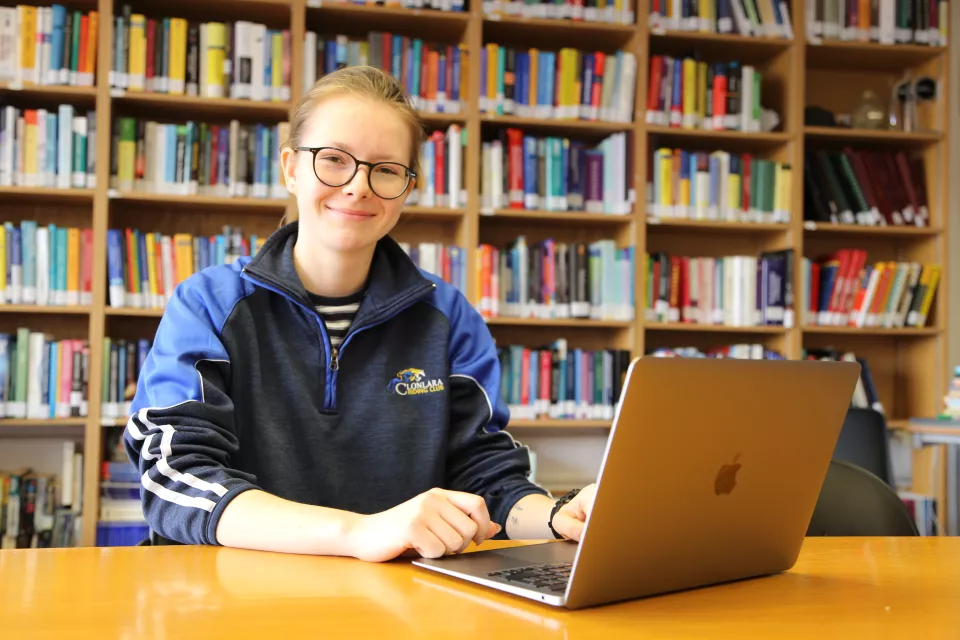
Course: Mathematical Sciences
Supervisor: Dr. Romina Gaburro
Name of Research Project/Activity: Inverse Problems in Medical Imaging
Q) Can you tell me a bit about yourself, your background, and why you decided to study the course you are taking at UL?
I would never have imagined studying mathematics at university, since it was my least favourite subject in secondary school. After visiting UL on one of its open days with friends, I was surprised by the friendliness of those on the stands. During my leaving cert, I received help in maths from a UL master’s student who encouraged me to consider studying maths in university, and spoke highly of the job opportunities that I could pursue with a mathematics degree. His encouragement and love for the subject was infectious and led me down the path I am currently on. Mathematics is a common entry course, which provides plenty of choice at the beginning. This gave me a wonderful opportunity to experience different areas of maths and statistics and learn a multitude of new skills including computer programming.
Q) What motivated you to apply for the UPSTART Programme?
My first year studying maths at UL gave me a flavour of interesting topics that we will come across in the upcoming years. My lifelong goal is to achieve a PhD, and applying to the UPSTART programme allowed me the opportunity to interact with world-renowned experts, while also beginning my own research journey.
Q) What are you doing as part of your research here at UL?
I have been working in an area of applied mathematics known as inverse problems, in particular inverse problems applied to medical imaging. Most problems are known as forward problems where we have all the information about a problem and want to find a solution. For example, we fill in the optical properties of an object into an equation and use it to figure out how light travels through the object. We know the causes (optical properties) and we figure out the result (how the light travels). In inverse problems, we are given information about the solution and we want to find the causes - so for the example above we are given how the light travels through the object, but we want to know the optical properties inside the object that caused the light to behave in that way. Medicine is a constantly evolving field, and investigating new non-invasive imaging modalities is important. I focused on an imaging modality known as magneto-acoustic tomography with magnetic induction or ‘MAT-MI’, which combines a high contrast modality (such as diffuse optical tomography) with a high-resolution modality (like an ultrasound) to obtain clearer images.
Q) what skills have you developed over the summer?
I was lucky enough during my internship to be included within the department, as I was given a desk within one of the postgrad research offices. During my time in the offices, I was afforded the luxury to learn about the various research projects that are ongoing in the department. The PhD students helped me develop my technical abilities, in both mathematical foundations and software, which has been invaluable. This research opportunity has also allowed me to gain an appreciation of the diverse range of skills required to be a researcher.
Q) What has this experience taught you and what would you recommend it to others?
This programme has highlighted the diverse spectrum of applications that require mathematics, some of which I would never have known before. Due to the nature and culture within the maths and stats department in UL, I now know that there are many unique opportunities open to me due to my versatile degree. I have also come to appreciate the transferability of a researcher’s skill set and acknowledge that a person’s original area of research is not always the path they pursue. I have found this a valuable experience and would highly recommend the UPSTART programme to others thinking of pursuing a career in research.
Q) What are your future career plans, would you consider a career in research?
After this research opportunity, I am considering a career in research. The varied nature of research and the opportunities to learn and explore are enticing. Though I am still in my undergraduate, my long-term career goals have become clearer.
